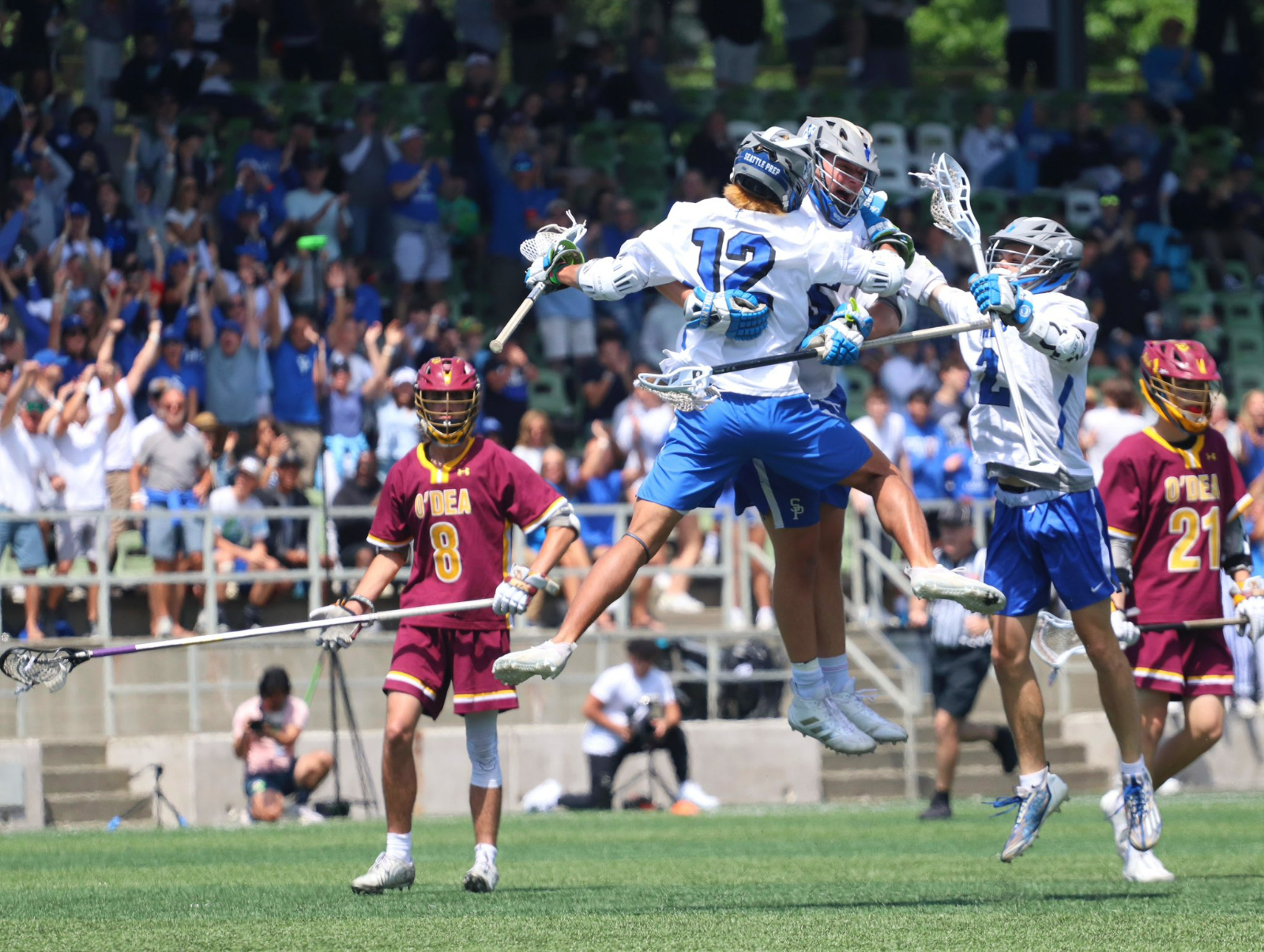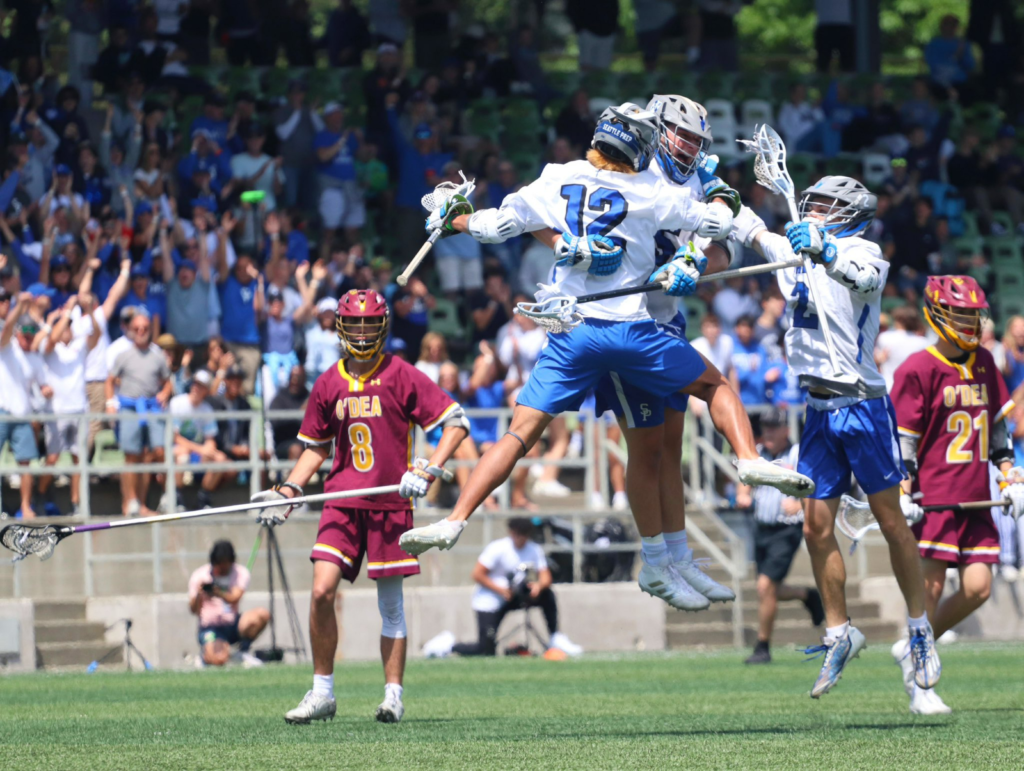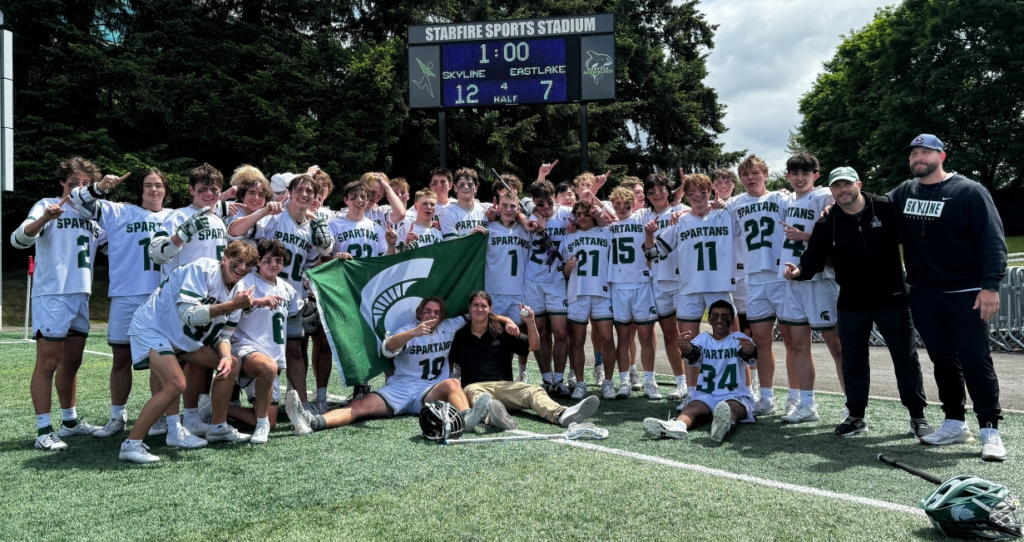
There’s nothing easy about building a team from the ground up, even high school teams, no matter what sport or how high of a demand it has. Yet every team has to start from somewhere, and teams that take the time to build a successful program stand out today as the top teams in their areas. But what made them such high level teams? How do they stay at the top after players keep rotating in and out every year?
I interviewed two of the head coaches of the top teams in the Metro Area, and I found that the emphasizing team chemistry and early player development are two fundamental components of what make lacrosse teams great.
The first coach I interviewed was Seattle Prep’s Sam Bennett, fresh off a 3A Washington State Lacrosse Championship. They have been a phenomenal team, and watching them play so seamlessly is a sight to behold. But what happens behind the scenes to make them such a powerhouse is just as inspiring as their skill.

Coaching some form of lacrosse since he was in 8th grade, Bennett doubles as a math teacher at Seattle Prep. So not only does he see his players on the field but also in the classroom, and he understands that not every person is excited to learn the quadratic formula. But Bennett relishes the all-encompassing nature of his roles.
“Not every adult gets to throw themselves into such a collective environment that we all push towards a singular goal, and it’s something I can definitely see myself doing for the rest of my life.”

Relative to other areas of the country, lacrosse scene is still small on the West Coast. It has only began to rise in popularity recently, but being small doesn’t necessarily have to be a bad thing.
“The lacrosse scene in the West Coast is very small, as I play against many kids I coached in the past, but it creates such a small community for lacrosse that I feel like I am part of something bigger than myself by building this team. It’s a cool, supportive community where, if we are looking to get players recruited, we know that a rival coach will help out and promote your players and vice versa.”
Community is such a big component for any sport’s culture, being able to trust your team to have your back is vital to success. And this team spends a lot of time building that community, from school retreats to team dinners with the middle and high school teams. Building the team’s comradery gives the team unparalleled trust and familiarity, and that makes the team work like a well oiled-machine.

The second coach that I interviewed was Skyline’s Dylan Hummel, the head of another high Washington State Lacrosse Champion at the 4A level. With three championships in six years, clearly Skyline’s success is no fluke. So it’s important to ask: what do they do differently from others?
Hummel has been coaching for over 12 years across multiple programs including Seattle Starz, H.I.T. Lacrosse, and Skyline along with other teams, schools, and programs. From elementary school level to professional, he coaches all ranges of experience. He played D3 lacrosse at Rosemont College in Philadelphia and was not only starting freshman and sophomore year but also was captain for both of the seasons.

One of the reasons Hummel believes his team is at the top so often is because “it’s the community pride. Our players are proud to be Skyline Spartans, and we try to emphasize that pride anyway we can.”
“One of our rituals after the National Anthem finishes, we do something similar to the movie 300. There’s a scene [in the movie] where Leonidas yells, ‘Spartans, what is your profession?’ and they holler back. Some people see it as corny or weird, but we are proud to be part of that community and having a drive. They all have something to prove, to family, friends, themselves. They are all here to prove that to everyone watching that I am giving them all I got.”
But it’s not just about getting the team fired up and excited to play; team chemistry and comradery also factors heavily into Hummel’s emphases.
“Everyone shares everyone else’s wins. One of my players won Senior Assassin, and we all cheered him for it and celebrated because we all partially felt we won as well, because he was part of us.”

While Hummel is proud to coach such a successful team, he was quick to point to other teams with a similar history of success — namely Mercer Island. Why does Hummel look to their squad as a reference point?
“They are all about this family dynamic from K to high school. They go on recruitment trips together, and it’s very successful for them. On the flip side of that, you have a lot younger programs that don’t have the money or resources to grow the program, but they get a coach that can build a program from the ground up.”
Like Seattle Prep’s Bennett, Hummel identifies that developing young players is central to continued success.
“The best programs seem to be the ones that invest in their youth, integrating the high school with the youth and having them coach the younger kids. Everyone is going to be a high school senior someday, and we want everyone to become better, so giving that opportunity to everyone we can really make an impact.”
Giving that chance to the youth and not only have them find the sport they are passionate about but also hone their skills early can make the player and team so much more successful later in life.
Two passionate coaches. Two highly successful programs. Two key similarities: develop team comradery and young talent in the program.
Whether that be with new teammates, old friends, or classroom acquaintances, when your on the field, there is no other time when you should be closer. The bond between a team is a strong motivation and can truly push a team to its very best. Pressure from a coach or parent can push a player, but having them truly love the sport and the people around them doesn’t just push them, but makes them push themselves. Getting people to love the sport and the team they are with, no matter the age.
If you can build a supportive team culture of players dedicated to each other and their own development, you will always have a winning lineup.

Latest Posts
- Double Down: Beach topples Roosevelt to sweep season series, cement No. 1 seed
- Girls Basketball: Rough Riders grind past Lions in one-point thriller
- Basketball: Haywood, Davis led Garfield to tough OT win over O’Dea
- Flag Football Recap: Crusaders split their double header
- Sophia Meyers, former EC volleyball ace,











